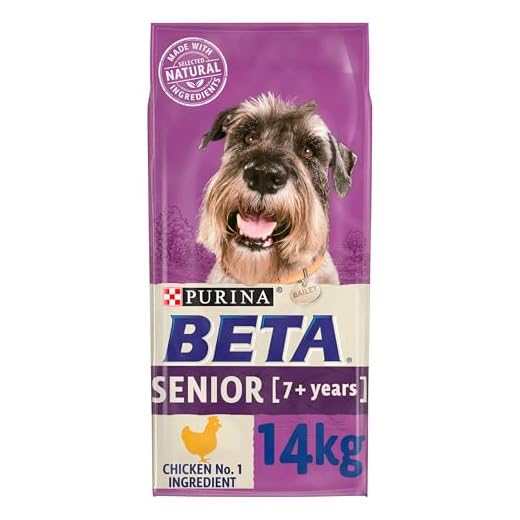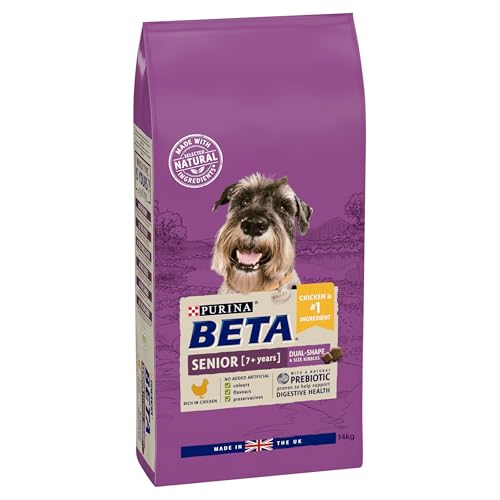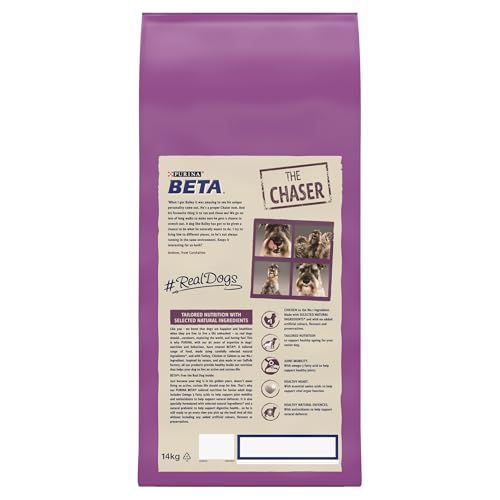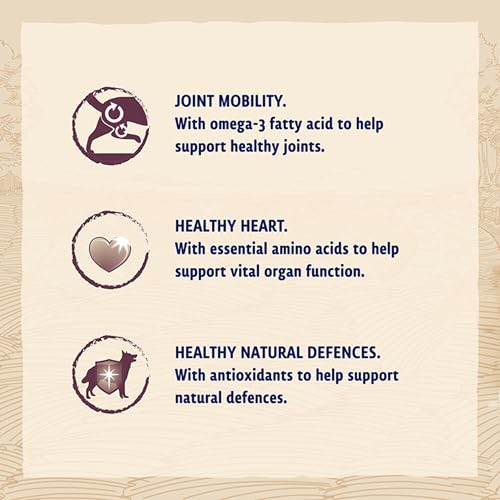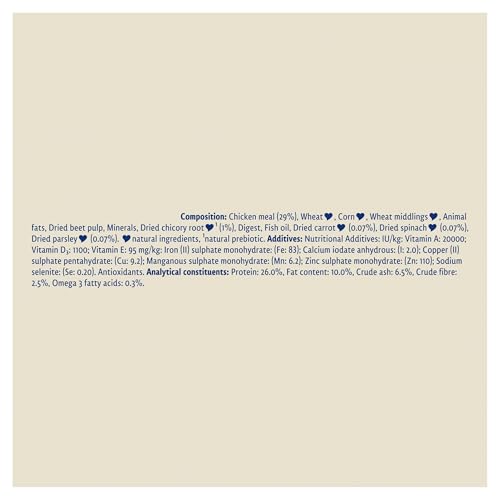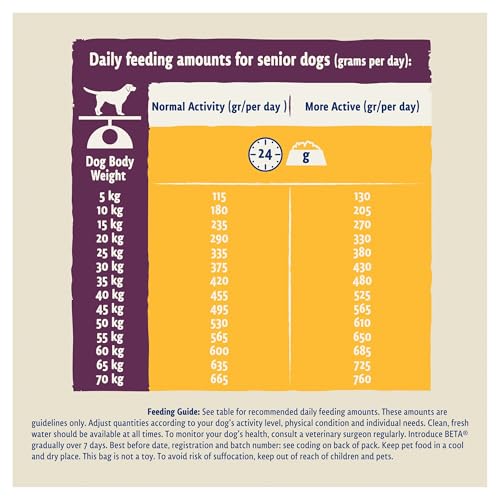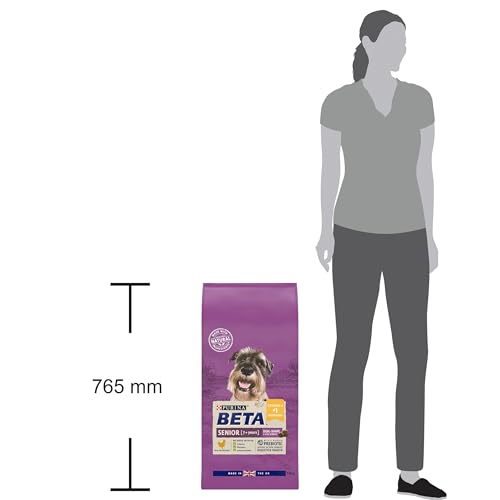



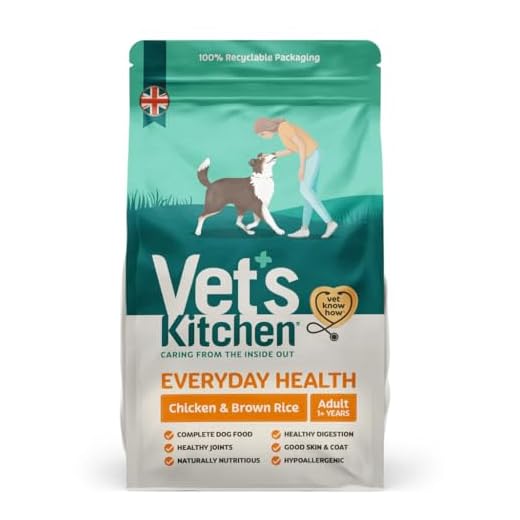
As a devoted dog owner, I understand how important it is to provide our furry friends with the best nutrition possible. Choosing the right food for your dog is not just about filling their bowls; it’s about ensuring they lead a healthy, happy, and energetic life. I’ve spent countless hours researching, consulting with veterinarians, and experimenting with different diets to find the optimal food choices for my dog. Here, I’ll share my findings and experiences to help you make informed decisions about your dog’s diet.
One of the first things I learned is that not all dog foods are created equal. The market is flooded with a variety of options, from dry kibble to raw diets, each claiming to be the best. However, the nutritional needs of dogs can vary significantly based on their age, breed, size, and health conditions. For instance, puppies require a diet rich in protein and fat to support their rapid growth, while older dogs may benefit from foods that support joint health and are easier to digest.
In my quest to find the best food for my dog, I discovered that high-quality ingredients make a significant difference. Foods with real meat as the first ingredient, combined with vegetables and grains, provide a balanced diet that supports overall health. I also found that avoiding artificial additives, preservatives, and fillers can prevent potential health issues and allergies. Paying attention to ingredient lists and choosing reputable brands can help ensure that your dog gets the nutrients they need.
Another crucial aspect of choosing the right food is understanding your dog’s specific dietary needs. Whether your dog has allergies, a sensitive stomach, or a particular health condition, there are specialized foods designed to cater to these issues. I consulted with my vet to tailor my dog’s diet to their unique needs, ensuring they receive all essential vitamins and minerals. This personalized approach has not only improved my dog’s health but also enhanced their overall quality of life.
Feeding your dog the best food is an ongoing journey that requires diligence and care. By prioritising high-quality ingredients and considering your dog’s unique needs, you can provide them with the nutrition they deserve. In the following sections, I will delve deeper into specific types of dog food, from dry kibble to raw diets, and discuss the pros and cons of each. Together, we will explore how to make the best dietary choices for your beloved canine companion.
Why Selecting the Appropriate Dog Food Is Crucial
As a devoted pet owner, I understand the importance of providing my dog with the best nutrition possible. The food we choose for our furry friends is more than just a meal; it is the foundation of their overall health and well-being. Ensuring my dog receives the proper nutrients can make a significant difference in their energy levels, coat quality, and even longevity.
When I first started looking into dog food options, I was overwhelmed by the sheer number of choices available. It became clear that not all dog foods are created equal. Some are formulated with high-quality ingredients and tailored to meet specific dietary needs, while others are filled with fillers and artificial additives. Making an informed choice requires understanding the unique nutritional requirements of my dog based on their breed, age, and health status.
The Impact of Quality Ingredients
High-quality ingredients are the cornerstone of a nutritious diet for my dog. Foods rich in proteins, vitamins, and minerals support healthy muscle development, immune function, and overall vitality. On the other hand, low-grade ingredients and unnecessary fillers can lead to a range of health issues, from digestive problems to skin irritations.
- Proteins: Essential for muscle growth and repair, proteins should come from identifiable meat sources like chicken, beef, or fish.
- Carbohydrates: Provide energy, but it’s crucial to choose whole grains or vegetables over processed fillers.
- Fats: Important for a healthy coat and skin, fats also aid in the absorption of fat-soluble vitamins.
- Vitamins and Minerals: These micronutrients are vital for numerous bodily functions, including bone health and immune response.
By prioritising foods that contain these key nutrients, I can help ensure my dog lives a healthier, happier life. Additionally, being vigilant about avoiding foods with artificial preservatives, colours, and flavours can further protect my dog from potential long-term health complications.
Tailoring to Specific Needs
Every dog has unique dietary needs based on factors like age, size, breed, and health conditions. For example, puppies require a diet rich in calories and nutrients to support their rapid growth, while senior dogs may benefit from foods that are lower in calories but higher in fibre to maintain a healthy weight. Breeds prone to certain health issues, such as joint problems or skin allergies, might need specialised diets to address these concerns.
- Puppies: Need high-protein, high-calorie diets to support growth and development.
- Adult Dogs: Require balanced nutrition to maintain health and energy levels.
- Senior Dogs: Benefit from diets tailored to manage weight and support joint health.
By understanding and addressing these specific needs, I can make more informed decisions about what to feed my dog, ensuring they receive the optimal nutrition for their stage of life and specific health considerations.
Nutritional Essentials for Your Dog’s Balanced Diet
Ensuring my dog receives the right nutrients is vital for their overall health and wellbeing. When planning their diet, I focus on providing a variety of nutrients that support their energy levels, immune system, and growth. It’s not just about the food they enjoy but what keeps them active and healthy in the long run.
Through research and consultations with veterinarians, I’ve identified key nutrients that should be present in my dog’s meals. Each nutrient plays a specific role, contributing to different aspects of their health, from strong bones to a shiny coat. Here’s a breakdown of these crucial elements.
Essential Nutrients for a Canine Diet
- Proteins: Proteins are the building blocks of your dog’s body, supporting muscle development and repair. High-quality animal proteins such as chicken, beef, and fish are particularly beneficial.
- Fats: Healthy fats are crucial for energy and maintaining a healthy coat and skin. Sources like fish oil and chicken fat provide essential fatty acids, including omega-3 and omega-6.
- Carbohydrates: While not as vital as proteins and fats, carbohydrates supply necessary energy and fibre. Whole grains, vegetables, and fruits are excellent sources.
- Vitamins: Various vitamins are essential for immune function, vision, and bone health. For instance, Vitamin A supports vision, while Vitamin E acts as an antioxidant.
- Minerals: Minerals such as calcium and phosphorus are fundamental for bone health, while iron is necessary for red blood cell function.
Additionally, hydration is a key part of a balanced diet. Fresh water should always be available to ensure proper digestion and overall health.
By understanding these nutritional needs and incorporating a variety of these elements into my dog’s diet, I can help ensure they live a healthy and active life. Regular check-ups with the vet also help in adjusting the diet according to my dog’s specific needs and health conditions.
Natural vs. Commercial Dog Food: Pros and Cons
Choosing what to feed my dog has always been a topic of interest for me. The debate between natural and commercially produced pet food has been ongoing, and I’ve often found myself weighing the benefits and drawbacks of each. There’s a lot to consider, from ingredients and nutritional value to convenience and cost.
On one hand, the allure of natural food is hard to resist. It’s often marketed as being closer to what our canine companions would eat in the wild, which appeals to many pet owners like myself who want the best for their furry friends. But is it really the perfect choice? Let’s break it down.
Natural Food: The Allure and the Reality
Natural food typically means food made with whole ingredients, without artificial additives or preservatives. For many dog owners, this sounds ideal. The idea is that these foods are healthier, offering a diet that is more aligned with what dogs evolved to eat. Here are some of the pros and cons I’ve considered:
- Pros:
- Higher Quality Ingredients: Natural foods often contain fresh meats, vegetables, and grains, with fewer fillers and by-products.
- Fewer Chemicals: Without artificial additives or preservatives, there’s less risk of exposure to potentially harmful chemicals.
- Better Digestion: Many natural foods are easier on the digestive system, which can be a boon for dogs with sensitive stomachs.
- Cons:
- Cost: Natural foods can be significantly more expensive than commercial options, which might be a deterrent for some pet owners.
- Preparation Time: Cooking or preparing natural meals from scratch requires time and effort, which can be impractical for a busy lifestyle.
- Balanced Nutrition: Ensuring a well-balanced diet with all necessary nutrients can be challenging without professional guidance.
Commercial Dog Food: Convenience with Considerations
On the other side of the spectrum, commercial dog food offers convenience and consistency. It’s easy to find, often comes with clear nutritional guidelines, and is designed to meet all of a dog’s dietary requirements. Here’s what I’ve found in favour of and against commercial options:
- Pros:
- Convenience: Commercial foods are ready-made, saving time and effort in meal preparation.
- Consistency: These foods provide a consistent nutritional profile, ensuring that dogs get all the vitamins and minerals they need.
- Research-Backed: Many commercial brands are formulated based on extensive research and are often recommended by veterinarians.
- Cons:
- Quality Variability: The quality of ingredients can vary widely, with some brands using fillers or lower-quality meats.
- Potential Additives: Some commercial foods contain artificial additives, preservatives, and colours, which some owners prefer to avoid.
- Digestive Issues: Some dogs may experience digestive problems with certain commercial foods, often due to additives or low-quality ingredients.
Ultimately, the choice between natural and commercial food depends on my priorities, lifestyle, and my dog’s specific needs. Whether I opt for the simplicity of commercial options or the wholesome appeal of natural foods, what matters most is finding a balance that keeps my dog healthy, happy, and thriving.
Understanding Dog Food Labels: What to Look For
When it comes to choosing the right food for my dog, understanding the labels on dog food packages is essential. These labels provide crucial information about the ingredients and nutritional value of the food. By learning how to read and interpret these labels, I can ensure that my furry friend gets the best possible diet to support their health and wellbeing.
One of the first things I look at is the ingredient list. Ingredients are listed in order of weight, with the heaviest first. This means that if meat is listed first, it is the primary ingredient. I pay attention to whether the meat is named specifically, such as “chicken” or “beef,” rather than vague terms like “meat meal.” Specific names indicate higher quality sources of protein, which are better for my dog.
Key Elements on Dog Food Labels
Besides the ingredient list, there are several other critical components of a dog food label that I always check:
- Guaranteed Analysis: This section provides the percentages of crude protein, crude fat, crude fibre, and moisture. It helps me understand the nutritional content and balance of the food.
- AAFCO Statement: The Association of American Feed Control Officials (AAFCO) statement indicates whether the food meets the established nutritional standards. I look for labels that state the food is “complete and balanced” for my dog’s life stage.
- Feeding Guidelines: These instructions help me determine the appropriate portion sizes based on my dog’s weight and activity level. Following these guidelines helps prevent overfeeding or underfeeding.
I also make sure to check for any potential allergens or artificial additives. Ingredients like artificial preservatives, colours, and flavours are not ideal for my dog’s health. Natural preservatives such as vitamin E and C are preferable. Additionally, if my dog has any known food sensitivities, I avoid common allergens like wheat, soy, and corn.
By carefully examining dog food labels and understanding what to look for, I can make informed decisions about my dog’s diet. This attention to detail ensures that my dog receives high-quality nutrition, contributing to their overall health and longevity.
Best Dog Food Brands Endorsed by Veterinarians
As a devoted dog owner, I know how important it is to choose the right food for our furry companions. Selecting a high-quality dog food not only ensures their overall health but also contributes to their longevity and happiness. Based on veterinary recommendations, I’ve compiled a list of the most trusted dog food brands that cater to various dietary needs and preferences.
These brands have been meticulously selected for their commitment to nutritional excellence and the wellbeing of pets. From balanced diets to specialised formulas, here are the dog food brands that stand out according to veterinarians.
Veterinarian-Approved Dog Food Brands
-
Royal Canin – Known for its tailored nutrition, Royal Canin offers breed-specific formulas and specialised diets for different health conditions.
-
Hill’s Science Diet – This brand is celebrated for its scientifically formulated recipes that cater to dogs of all ages and sizes, with a focus on promoting optimal health.
-
Purina Pro Plan – Purina Pro Plan provides a range of products that support various dietary needs, including sensitive skin and stomach, weight management, and athletic performance.
-
Blue Buffalo – Featuring natural ingredients and a wide variety of flavours, Blue Buffalo is a favourite for pet owners seeking wholesome nutrition without artificial additives.
-
Wellness Complete Health – This brand offers balanced nutrition with a focus on natural ingredients, providing options for both puppies and senior dogs.
-
Orijen – Orijen is renowned for its biologically appropriate recipes, using fresh regional ingredients to mirror the natural diet of wild dogs.
-
Nutro Ultra – Nutro Ultra blends high-quality protein with superfoods, ensuring a nutrient-rich diet for dogs with discerning tastes.
-
Merrick Grain-Free – For dogs with grain sensitivities, Merrick offers grain-free options that still deliver comprehensive nutrition and great taste.
-
Canidae – Canidae is committed to creating simple, high-quality recipes with limited ingredients, making it ideal for dogs with food sensitivities.
-
Acana – Acana, like its sister brand Orijen, uses fresh regional ingredients and focuses on biologically appropriate nutrition, catering to the natural dietary needs of dogs.
Choosing the right food for your dog is crucial for their health and wellbeing. These brands, recommended by veterinarians, provide a solid foundation for a nutritious diet tailored to your dog’s specific needs.
Delicious Homemade Dog Food Recipes Your Pet Will Adore
As a dog owner, I constantly strive to provide the best for my furry friend. One of the ways I ensure their happiness and health is by preparing homemade meals tailored to their needs. There’s something incredibly satisfying about knowing exactly what goes into my pet’s food, and seeing the joy on their face when they devour a meal made with love.
Creating homemade dog food is not only rewarding but also allows me to cater to specific dietary requirements my pet might have. From ensuring balanced nutrition to avoiding allergens, homemade recipes offer a level of control and customisation that store-bought options simply can’t match.
My Favourite Homemade Dog Food Recipes
Chicken and Vegetable FeastThis recipe is a hit with my dog every time. It’s packed with lean protein and essential vitamins.
- 2 chicken breasts, cooked and shredded
- 1 cup of carrots, diced
- 1 cup of peas
- 1 sweet potato, boiled and mashed
- 1 tablespoon of olive oil
- Combine the chicken, carrots, peas, and sweet potato in a large bowl.
- Add the olive oil and mix thoroughly.
- Serve in portions suitable for your dog’s size and appetite.
Beef and Rice DelightFor dogs who love beef, this recipe is nutritious and easy to digest.
- 500 grams of ground beef, cooked
- 1 cup of brown rice, cooked
- 1 cup of spinach, chopped
- 1 carrot, grated
- 1 tablespoon of fish oil
- Mix the cooked beef and rice together in a large bowl.
- Stir in the spinach and grated carrot.
- Drizzle the fish oil over the mixture and blend well.
- Serve in appropriate portions based on your dog’s size.
Turkey and Quinoa TreatThis recipe is perfect for dogs with sensitivities to common grains.
- 500 grams of ground turkey, cooked
- 1 cup of quinoa, cooked
- 1 zucchini, diced
- 1/2 cup of blueberries
- 1 tablespoon of flaxseed oil
- Combine the cooked turkey and quinoa in a mixing bowl.
- Add the diced zucchini and blueberries.
- Mix in the flaxseed oil thoroughly.
- Serve to your dog in appropriate portions.
By preparing these meals at home, I can ensure my dog is getting fresh, wholesome ingredients that contribute to their overall health and happiness. Plus, it’s a wonderful way to bond with my pet and make mealtime a joyous occasion.
How to Transition Your Dog to a New Food Safely
Switching your dog’s food can be a delicate process, but with careful planning, it can be done smoothly. The key is to introduce the new food gradually to avoid any digestive upset and ensure your dog adapts well to the change. Here’s a step-by-step guide on how to transition your dog to a new diet safely.
Firstly, it’s important to choose the right time for the transition. Avoid switching foods during periods of stress, such as moving homes or after a medical procedure. Pick a calm period when your dog is healthy and can handle the dietary change without additional stress factors.
Step-by-Step Transition Plan
Follow this gradual transition plan over a week to ensure your dog’s digestive system adjusts well to the new food:
- Day 1-2: Start by mixing 25% of the new food with 75% of the old food. Monitor your dog for any signs of digestive upset, such as diarrhoea or vomiting.
- Day 3-4: Increase the new food to 50% and reduce the old food to 50%. Continue to observe your dog’s response to the new diet.
- Day 5-6: Mix 75% of the new food with 25% of the old food. If your dog is handling the transition well, proceed to the next step.
- Day 7: Serve 100% of the new food. By this time, your dog should be fully accustomed to the new diet.
Monitor your dog’s health throughout the transition. Look for any signs of discomfort, changes in stool consistency, or changes in appetite. If any issues arise, slow down the transition process and consult your veterinarian if necessary.
Tips for a Successful Transition:
- Ensure the new food meets your dog’s nutritional needs and is appropriate for their age, size, and health condition.
- Introduce new foods gradually, even if your dog seems eager to eat them.
- Keep fresh water available at all times to help with digestion and hydration.
- Maintain a consistent feeding schedule to create a sense of routine for your dog.
Transitioning your dog to a new food doesn’t have to be a stressful experience. With careful planning and close observation, you can ensure your dog enjoys their new diet and stays healthy throughout the process.
Common Dog Food Allergies and How to Avoid Them
As a dedicated dog owner, I understand the importance of providing my furry companion with the best nutrition possible. However, despite our best efforts, our dogs can sometimes develop allergies to certain ingredients in their food. Recognising these allergies early on and taking steps to avoid them is crucial for maintaining their health and well-being.
One of the most common causes of allergic reactions in dogs is specific proteins found in their diet. Chicken, beef, and dairy are often the culprits, leading to symptoms such as itching, digestive issues, and ear infections. Identifying these allergens and eliminating them from my dog’s diet has been a key step in managing their allergies.
Identifying and Avoiding Food Allergies
To pinpoint the exact cause of my dog’s allergies, I followed a process of elimination under the guidance of a veterinarian. This involved removing all potential allergens from their diet and gradually reintroducing them one by one, carefully monitoring for any adverse reactions.
Steps to Avoid Common Dog Food Allergies:
- Consult with a veterinarian: Before making any changes to my dog’s diet, I sought professional advice to ensure their health needs were properly addressed.
- Choose hypoallergenic dog food: I opted for specially formulated dog foods that avoid common allergens, using alternative protein sources like lamb, fish, or duck.
- Read ingredient labels carefully: Being vigilant about checking food labels helped me avoid hidden allergens and ensure that my dog’s food was safe.
- Introduce new foods gradually: When trying new foods, I introduced them slowly to observe how my dog reacted, ensuring that any potential allergens were identified early.
In addition to these steps, I found it helpful to keep a detailed record of my dog’s diet and any reactions they experienced. This information was invaluable when discussing my dog’s health with their veterinarian, allowing for more accurate diagnoses and effective treatment plans.
Managing dog food allergies can be challenging, but with careful attention and a proactive approach, it’s possible to keep my dog happy and healthy. By understanding common allergens and taking steps to avoid them, I’ve been able to provide my furry friend with a diet that supports their overall well-being.
Best Dog Foods for Different Breeds and Ages
When it comes to feeding our furry friends, it’s essential to consider their specific breed and age. Different breeds have unique dietary requirements, and what works for a puppy may not be suitable for an adult or senior dog. By tailoring their diet to their needs, we can ensure they stay healthy and happy throughout their lives.
Choosing the right food involves understanding the nutritional needs of your dog’s breed and age. Larger breeds might require more glucosamine for joint health, while smaller breeds might benefit from calorie-dense food. Similarly, a puppy’s growth demands a different nutritional profile compared to a senior dog who may need fewer calories and more fibre.
Breed-Specific Nutrition
Each breed has its unique nutritional needs. For example, large breeds like Labradors and German Shepherds benefit from foods that support joint health and lean muscle maintenance. High-quality proteins and controlled fat levels help maintain their weight and support their active lifestyles. On the other hand, small breeds such as Chihuahuas and Dachshunds require food that’s rich in calories and nutrients in smaller portions due to their fast metabolisms and smaller stomachs.
- Large Breeds: Look for dog foods with added glucosamine and chondroitin, which support joint health. Also, choose formulas with lower fat content to prevent obesity.
- Small Breeds: Opt for calorie-dense foods with smaller kibble size, ensuring they receive adequate nutrition without overfeeding.
Medium breeds, such as Beagles and Bulldogs, fall somewhere in between and often do well on balanced diets that offer moderate levels of protein, fat, and carbohydrates. Always consider any breed-specific health concerns, such as hip dysplasia in Bulldogs, which might necessitate additional joint support in their diet.
Age-Appropriate Dog Food
Age is another critical factor in determining the best food for your dog. Puppies, adults, and seniors all have different nutritional needs. Puppies, for example, need food that’s rich in protein and fat to support their rapid growth and development. Puppy formulas often contain higher levels of DHA to support brain development.
- Puppies: Choose foods labeled for growth and development, which are higher in protein and fat. Ensure the food includes DHA for brain health.
- Adults: Maintenance diets are appropriate, focusing on balanced nutrition to support energy levels and overall health. Adjust portions based on activity level and body condition.
- Seniors: Look for senior dog formulas that are lower in calories but higher in fibre to support digestion. Additional joint support and antioxidants can also be beneficial.
By considering both breed and age, we can make informed decisions about our dog’s diet, ensuring they receive the nutrients they need at every stage of their life. Regularly consulting with a veterinarian can also help tailor their diet to any specific health concerns or changing nutritional needs.
Best Food For Your Dog To Eat
Features
| Part Number | d805b |
| Size | 12 kg (Pack of 2) |
Features
| Part Number | 29046 |
| Model | 02SKFTLS |
| Warranty | 1 year manufacturer |
| Size | 1 count (Pack of 1) |
| Language | English |
| Price history for Skinner’s Light & Senior Dry Dog Food 15kg | |
|---|---|
|
Latest updates:
|
|
Features
| Part Number | 401726 |
| Model | 02JT1 |
| Color | Brown |
| Is Adult Product | |
| Release Date | 2010-12-03T00:00:01Z |
| Size | 15 kg (Pack of 1) |
| Price history for James Wellbeloved Turkey & Rice Dog Food 15kg | |
|---|---|
|
Latest updates:
|
|
Features
| Size | 500 g (Pack of 42) |
Features
| Part Number | 30961 |
| Model | 30961 |
| Warranty | Manufacturer Fault |
| Color | Clear |
| Release Date | 2011-06-20T00:00:01Z |
| Size | 7.5 kg (Pack of 1) |
| Energy Efficiency Class | A |
Features
| Part Number | VKD21 |
| Model | 82524 |
| Color | clear |
| Release Date | 2020-12-14T00:00:01Z |
| Size | 6 kg (Pack of 1) |
| Price history for Vet's Kitchen Grain Free Dog Food 6kg | |
|---|---|
|
Latest updates:
|
|
Features
| Is Adult Product | |
| Release Date | 2025-05-17T00:00:01Z |
| Language | English |
| Number Of Pages | 213 |
| Publication Date | 2025-05-17T00:00:01Z |
Features
| Part Number | 10746 |
| Model | 10746 |
| Size | 10 kg (Pack of 1) |
| Language | French |
Features
| Part Number | 12274093 |
| Model | TP-7613035152908_Vendor |
| Release Date | 2015-08-24T00:00:01Z |
| Size | 11 kg (Pack of 1) |
| Language | Spanish |
| Price history for Pro Plan Veterinary Diets Dry Food 11kg | |
|---|---|
|
Latest updates:
|
|
Features
| Part Number | 12231689 |
| Model | 12531980 |
| Color | transparent |
| Release Date | 2014-05-23T00:00:01Z |
| Size | 1 count (Pack of 1) |
Q&A:
What are the best types of food to feed my dog?
The best types of food for your dog include high-quality commercial dog food, which is specifically formulated to meet their nutritional needs. Look for products that list meat as the first ingredient and avoid those with artificial additives. Additionally, you can supplement their diet with fresh vegetables, fruits, and lean meats, but always consult with your vet before making any changes to their diet.
Can I feed my dog human food?
While some human foods are safe for dogs to eat, others can be harmful. Foods such as plain cooked chicken, carrots, and apples can be given in moderation. However, you should avoid giving your dog chocolate, grapes, onions, and anything with artificial sweeteners like xylitol. Always ensure any human food you give your dog is free from harmful ingredients and consult with your vet if you are unsure.






